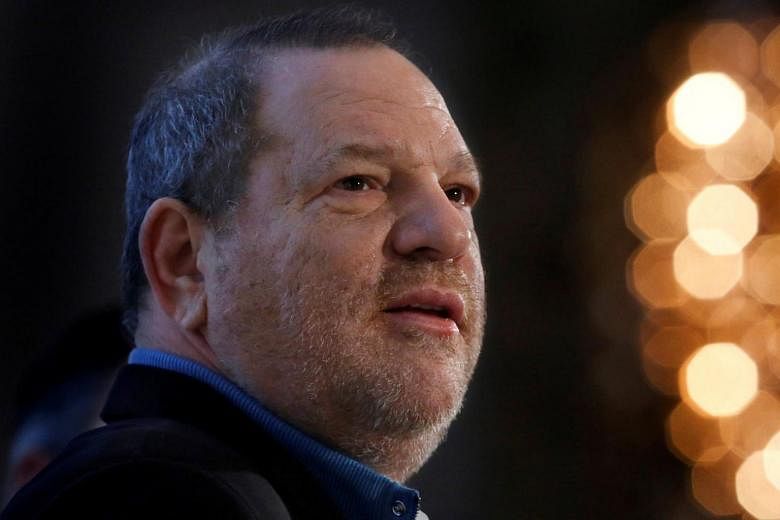SINGAPORE - I thought that the wave of rich, powerful men coming down because of sexual harassment charges would hit only those I didn't like, or didn't care about.
Then a week ago, actor George Takei's name hit the news. A former model and actor, Scott Brunton, says that in the 1980s, Takei had sexually assaulted him when he was drunk.
The charges knocked the wind out of me. I respect and admire Takei, both as a pioneer in breaking the Hollywood colour line in the 1960s, and as an activist on social media defending the weak.
Now, should the Brunton charge stick, Takei won't be remembered as Star Trek's officer Sulu, an Asian in the movies and television who wasn't a punchline because of his eyes or accent, nor will he be remembered as the gadfly grandpa who weaponised Twitter to tweak the noses of the elite.
No. He will be "one of those guys". The men who, in the wake of the Harvey Weinstein takedown, have been outed for sexual misconduct: Comedian Louis C.K, producer and director Brett Ratner, photographer Terry Richardson, actor Kevin Spacey and many more.
I'm hoping that Takei will be cleared, but I'm steeling myself for the worst and perhaps having more of the people I've put on pedestals come down.
The Weinstein-quake has had more of an impact on people's lives than Wikileaks or the more recent document leak, the Paradise Papers. More men have lost their jobs, and have come under police investigation, than any recent outing of hidden financial evidence.
In fact, more men in power have been sacked and publicly shamed, post-Weinstein, than official inquiries into the 2008 financial meltdown, when bankers came under scrutiny.
That's the big picture. There's the smaller, more personal inventory I've been taking.
The stream of dismal news made me read what women have to say about all this and, speaking as a man, it's been, uh, bracing.
On Twitter, Facebook, and with the #MeToo tag, women are talking about professors who groped them in college, supervisors who dropped hints or waited outside the workplace hoping to chat, random men in bars, schools, trains, buses, workplaces who, with one phrase or inappropriate touch, can shatter a woman's well-being.
And this phrase gets me: "Then he turned around and walked away, as if it was nothing."
Thanks to women writing their accounts, it articulated something I had known but never thought about: The victim remembers, the perpetrator forgets. Trauma is a great memory aid.
It's why when men respond to charges of misconduct against women, the frequent reply is: "I don't recall." Of course they wouldn't. It's the law of disproportionate impact - the bicycle thief who steals a thousand bikes won't remember bike 435, but to its owner, it was a treasured birthday gift. Takei denies Brunton's allegations. This is, at least, a better response than Kevin Spacey's "I don't remember that encounter".
Until Takei came along, I thought that sexual misconduct was a character problem.
Bad ethics, bad behaviour. Weinstein was a bully, Louis C.K. abused drugs in the past, it's all of one piece.
But how do you explain, say, Spacey? He is a wonderful actor who lent his prestige and talent to causes such as the Old Vic theatre in London, where he was its artistic director for 11 years. And if the Takei charge is true, how do you explain him?
As many, many women have written and said, it's not about character, even though we'd all like it to be, because then we'd be able to sleep at night.
What it is about is power and opportunity. When these two factors are there, all the "character" in the world is useless.
If you think about it, we already know this. Thirty years ago, a powerful man like, say, a school principal, coach or doctor might say "trust me" and be put in charge of girls, alone.
These days, we'd make sure that someone else - a woman, preferably - is present. In the future, we might insist that the women be of equal rank to him.
But that would be shifting the problem of the crime to its victims. And - not to diminish the impact of sexual abuse on women - men close to the female victims are also hurt by the crime.
So when anyone says that "sexual misconduct cannot happen here because our people are of good character", watch out, because complacency is just the thing for making it worse.
As I've learnt from reading women's accounts, male power is a drug, one that hurts both men and women. It's an intoxicant as powerful as alcohol and the sooner that is recognised and dealt with, the better.


